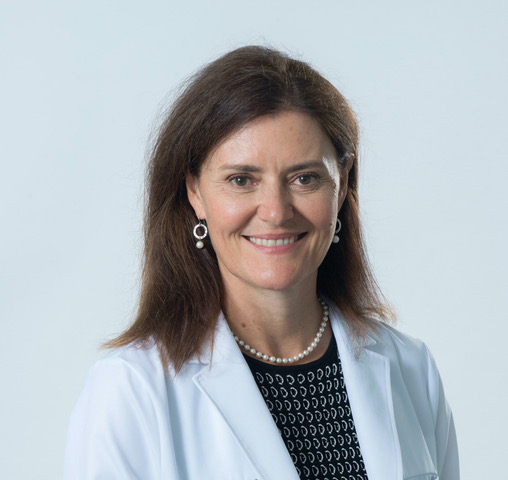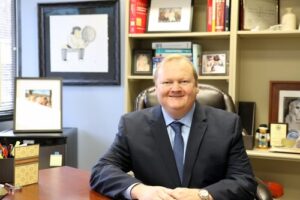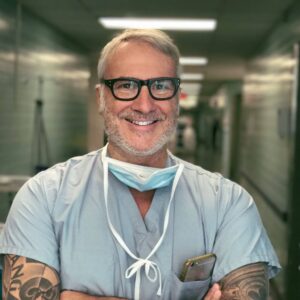
Dr. Shanti Mohling
Shanti Mohling, M.D.
Dr Shanti Mohling – Endometriosis Specialist, Minimally Invasive Gynecologic Surgeon
Summary: Dr Shanti Mohling, an experienced endometriosis specialist based in Portland, OR, takes a multifaceted approach to treating pelvic pain and endometriosis. Dr Mohling believes endometriosis originates during embryogenesis, and hormonal changes at menarche trigger its progression. Her philosophy combines a deep understanding of the condition’s genetic and environmental factors. With a focus on complete excision, Dr Mohling works to arrest the disease and improve her patients’ quality of life. She offers various hormonal therapies, including progestin-only contraceptives and bioidentical hormone therapy for surgical menopause patients. For pain management, she uses a combination of NSAIDs, nerve modulation, and sometimes Botox for pelvic floor myalgia. Dr Mohling’s holistic approach also includes collaboration with specialists in areas like functional medicine, pelvic floor physical therapy, and nutritional support, making her a compassionate and thorough provider for patients seeking expert care for endometriosis.
Incorporating her expertise and dedication, Dr Shanti Mohling is a trusted name in Portland for patients looking for comprehensive care in treating endometriosis and pelvic pain.
City: Portland, OR, USA
Philosophy: I believe endometriosis has multifactorial origins. Regarding surgical management, I treat it as though its origin begins with development during embryogenesis as the müllerian system is migrating. I believe most patients with endometriosis are born with it and that it flourishes during menarche with advent of hormonal changes. I also believe that there is a component of environmental impact such that a patient with genetic predisposition (and abnormal cells from embryogenesis) may do worse with an inflammatory environment (foods, pollution, stress, etc.). However, I believe that complete excision should mostly arrest disease and my treatment is based on mullerianosis as the genesis.
Medication: I work with patients in a collaborative fashion to arrive at the best option for each individual.
Hormonal therapies: Progestin-only contraceptives, combination oral contraceptives, Levonorgestrel IUD, Nexplanon occasionally. I almost never offer Depo Medroxyprogesterone acetate (due to side-effects) or GnRH analogs (due to side-effect profile and long-term negative effects). I have worked with bioidentical hormone therapy for over 20 years and also incorporate that when appropriate, such as in patients who have undergone surgical menopause or patients who do not tolerate synthetic hormonal therapy.
For pain: NSAIDS, occasionally narcotics, naltrexone and occasionally Medical Marijuana when appropriate. Sometimes neuromodulators such as gabapentin and pregabalin. I often recommend amitriptyline, especially in the case of interstitial cystitis. Finally, I sometimes prescribe compounded vaginal suppositories which may include valium, baclofen or ketamine.
I also use Botox for pelvic floor myalgia on a routine basis.
Approach to Persistent Pain After Surgery: I believe most pelvic pain is multifactorial: endometriosis, interstitial cystitis, bowel dysfunction (to include IBS, SIBO, Intestinal Permeability, gastroparesis), myofascial pain and neuropathic pain. At the initial work-up, I attempt to identify each of these contributors. Yesterday, I saw a postop patient who had had extensive endometriosis excised and confirmed by pathology. She had persistent pain. We reviewed her history of bowel symptoms, history of schistosomiasis and giardia (she had worked in Africa) as well as an exam suggesting pelvic floor myalgia. She will now work with a functional medicine specialist and pelvic floor physical therapist. We also discussed hormonal options (progesterone has a distinct effect on gastric function). This is very typical of my approach.

Dr. Steven Vasilev
Dr. Steven Vasilev MD, MBA FACOG FACS FACN ABIHM ABOIM
Dr Steven Vasilev – Endometriosis Specialist, Oncology & Minimally Invasive Robotic Surgery| Medical Director, GO Institute.
Summary: Dr Steven Vasilev is a highly respected endometriosis specialist serving patients in Santa Monica, Beverly Hills, and San Luis Obispo. With over 30 years of experience, Dr Vasilev is known for his expertise in complex gynecologic surgery, including minimally invasive and robotic techniques. Steven Vasilev MD is the only physician in the U.S. triple board-certified in OB-GYN, oncology, and integrative medicine—bringing a comprehensive, personalized approach to each patient’s care.
Patients who choose Dr Steven Vasilev benefit from a philosophy that combines precision excision surgery with holistic healing strategies. From preoperative imaging to pelvic floor therapy and integrative recovery plans, Dr Vasilev offers thoughtful, multidisciplinary care tailored to long-term wellness. Steven Vasilev MD is not only a skilled surgeon but also a compassionate listener dedicated to improving outcomes for those living with endometriosis.
City: Santa Monica, Beverly Hills & San Luis Obispo, CA, USA.
Please watch the short informative video in the upper left corner of this profile.
Philosophy:
In addition to being a doctor and surgeon, I am a clinical researcher and translational scientist. We are studying the molecular behavior of endometriosis in our laboratories. Endometriosis theories suggest multiple causes, and each thesis
contributes to factors likely tied together at the molecular genetic level. Identification of endometriosis molecular and immunomodulatory pathway biomarkers will soon lead to better non-invasive diagnostics, accurate monitoring, and effective therapies beyond the baseline of expert excisional surgery and hormonal manipulation. I focus on this and the uncommon but clear overlap with malignancy in older endo patients or those with a family history.
Surgical excision is a critical cornerstone for endo diagnosis, initial treatment, and re-excision of recurrence or pain-producing fibrosis. My philosophy is to be fully informed and prepared, no matter the findings, through optimal preoperative imaging and testing. Fortunately, my unique training and board certifications permit surgery on all abdominal or pelvic organs, including small and large bowel, ureters, bladder, liver, and diaphragm. If disease is suspected beyond these organs, such as the chest, we have expert cardiothoracic and neurosurgeons ready to join a multidisciplinary surgery. Having used both laparoscopy and robotics in thousands of surgeries over three decades, including the hardest of the complicated surgeries, I firmly believe that the far superior 3-D camera optics and articulating or wristed “tiny hands” instruments used in robotics are better than traditional laparoscopy for all but the simplest of cases. When complicated anatomy or scarring from endo and fibrosis is unexpectedly found, which is not uncommon because endo is intensely inflammatory, the ability to see better and use finesse instruments makes all the difference, especially in highly experienced hands.
Medication:
During the perioperative period, we use holistic ERAS-modified care, combined with integrative modalities such as acupuncture and acupressure, to allow faster recovery with lower narcotic use. We individually construct and coordinate a multidisciplinary consulting team of experts to manage pain, intestinal manifestations such as SIBO and pelvic floor dysfunction. We work with referring gynecologists regarding hormonal support but discourage using GnRH-based therapies. My board certification in Integrative Medicine uniquely injects additional options involving holistic care. An example is proactive estrobolome management to lower systemic estrogen levels naturally.
Approach to Persistent Pain:
Both pre- and post-operatively, I strongly encourage pelvic floor therapy and pain specialist consultation and follow-up. The genesis of endo-induced pain can be due to endometriosis implants and peripheral visceral and parietal peritoneal nociception, fibrosis, direct nerve impingement, pelvic floor dysesthesia, or central sensitization. A very individual approach is vital to the best management plan. In primary and persistent pain situations, each of these “medicalese” terms is discussed in detail to craft the best possible personalized plan. Finally, as noted above, I am a board-certified integrative medicine practitioner and thus apply Eastern thought such as acupuncture, mind-body strategies, and personal nutritional counseling and interventions.
Dr. Steve’s Articles:

Dr. Nicholas Fogelson
Nicholas Fogelson, M.D., FACOG,
Dr Nicholas Fogelson – Endometriosis Specialist, Advanced Pelvic Surgeon, Minimally Invasive Gynecologic Surgeon.
Summary: Dr Fogelson is a leading endometriosis specialist and advanced pelvic surgeon based in Portland, Oregon. Patients from across the country trust Dr Nicholas Fogelson and his clinic, Northwest Endometriosis, also known as NW Endometriosis, for expert, compassionate care. With a strong foundation in the latest research, Dr Fogelson approaches each case with precision and empathy, offering tailored treatments that prioritize long-term relief. Thanks to his reputation for surgical excellence and individualized care, NW Endometriosis has become a top destination for patients seeking advanced support for this complex condition.
At Northwest Endometriosis, Dr Nicholas Fogelson provides excision surgery backed by a deep understanding of the varied presentations of endometriosis. His treatment plans often include pelvic floor therapy, lifestyle guidance, and selective use of hormonal therapy. Whether patients are local or traveling for care, Dr Fogelson and the NW Endometriosis team are committed to delivering ongoing support and expertise every step of the way.
City: Portland, Oregon.
Philosophy: I strongly believe that endometriosis is not one disease, but rather are a constellation of states of similar but not identical disease states. This concept is strongly supported by the very large number of genes that are tightly bound to the disease state, which is more characteristic of a multifactorial and multiorigin disease than a single disease entity. Ie. calling endometriosis one thing is like calling cancer one thing.
Right now the predominant theory is that of mullerianosis, suggesting that endometriosis is a defect of embryogenesis. This theory is supported by a variety of data. At the same time, we also have evidence of environmental factors that seem to promote endometriosis, either through actual genesis of disease or through worsening of the already existent disease and therefore making diagnosis more likely.
The variable response to various therapies among different patients is also suggestive that there is more than one underlying disease state. Ie some patients respond completely to surgical excision and have very little benefit from medical therapies, while some other patients have near-complete cessation of symptoms while on progesterone suppression. Some patients have severe pain, others have no pain, and may only present with infertility. Furthermore, the variability of the appearance of endo surgically also suggests more than one underlying origin. For example, there is a clearly a subtype of endometriosis that presents with high grade rectovaginal deep infiltrating endometriosis, while sparing the ovaries and other peritoneal surfaces. Other patients may have endometriotic implants studded throughout their pelvis, many superficial with perhaps some small deeper areas, without advanced deep disease in any particular area. Again, this suggests a different origin of disease rather than a clinical variation of an identical disease state.
At this point, our understanding of the disease is incomplete. My approach is to individualize care to each particular patient in efforts to improve her quality of life to the maximum. Most patients seek me out for excision surgery, which I do a great deal of. And at this point, excision surgery is the optimal treatment we have available. At the same time, it is critical that we keep an eye out to a better future understanding of the underlying disease that may open up other effective treatment modalities.
Medication: Most of my patients have already been on medical therapies with other physicians and have not found relief, leading them to seek out endometriosis surgery. My primary treatment modality is excisional therapy, but we may augment that with hormonal suppression postoperatively in some cases. Usually, this is only for 3-6 months postoperatively, but in some cases, patients may choose to be on suppression for longer. While in theory, a patient who has had full excision of disease should not benefit from medical therapy, there are some data that do suggest a decreased frequency of recurrent pain in patients who do use progesterone suppression after surgery. These data may be biased by the inclusion of surgery that is not as complete as what is typical in my practice and other expert-level surgeons’ practices, and this may explain this result.
I typically do not use GnRH modulators such as Lupron or Orilissa, as their side effect profile is often worse than the benefit gained, and a minority of women may experience long term harm from their use.
Approach to Persistent Pain: Every case is different, so there can be no one specific approach. Most patients have thorough excision of endometriosis as part of their treatment. Most experience substantial relief from this, but over time some may have recurrent pain.
All patients should be evaluated by a skilled pelvic PT and get support for pelvic floor pains. When this is severe pelvic floor botox may be appropriate. We also have to consider urinary tract sources of pain such as interstitial cystitis. When appropriate, some patients may have repeat laparoscopy if we believe there may be recurrent or residual disease (particularly if a patient comes in after surgery from an outside surgeon. We also must evaluate other neurologic sources of pain, such as vascular or ligamentous entrapment of pelvic nerves (ie nerve roots, sciatic, femoral, obturator, pudendal, etc.). In limited cases, direct neurolysis of affected nerves may lead to relief. When a persistent pain can be neurologically localized but is not addressable surgically, or surgery has failed to relieve the pain, direct neurostimulation of affected nerves can have substantial efficacy in decreasing or even eliminating pain. We also encourage all patients to eat a healthy anti-inflammatory diet and to get regular exercise.
While some patients travel to see us, many patients come from our local area and continue to work with our practice ongoing for their routine care as well as any issues of recurrent pain. We are committed to continuing to care for all of our patients, as long as it is practical for them. While many patients do travel for surgery, we think that the best care comes with an ongoing relationship with a physician who not only can operate but has a wide base of knowledge in pelvic pain, and can help manage care actively.

Dr. Ken Sinervo
Dr Ken Sinervo, M.D., M.Sc, F.R.C.S.C., A.C.G.E.
Medical Director, Center for Endometriosis Care
Gynecology & Minimal Invasive Surgery
Endometriosis Specialist.
Summary: Dr Ken Sinervo, M.D., M.Sc., F.R.C.S.C., A.C.G.E., is a globally recognized leader in the treatment of endometriosis and the Medical Director of the Center for Endometriosis Care in Atlanta GA. With decades of experience, Dr. Ken Sinervo is renowned for his expertise in minimally invasive excision surgery and his compassionate, patient-focused approach. Patients from around the world travel to see Dr Ken Sinervo Atlanta GA for advanced care that addresses the full complexity of this challenging condition. As a leading expert in the field, Ken Sinervo gynecology services are known for combining surgical precision with a deep understanding of chronic pelvic pain and reproductive health. Whether patients are newly diagnosed or have struggled with endometriosis for years, Dr Ken Sinervo offers hope through highly individualized treatment. His reputation for excellence continues to make Dr Ken Sinervo Atlanta GA a trusted destination for those seeking specialized care. With a strong foundation in evidence-based medicine, Ken Sinervo gynecology expertise reflects a commitment to both innovative treatment and long-term patient support.
City: Atlanta, GA, USA.
Dr. Ken Sinervo is a world-renowned expert in the excision of endometriosis and multidisciplinary care of the disease. A humble, compassionate surgeon who truly cares for his patients, he has won countless awards for his dedicated service and is known to always go above and beyond for those in his care.
Philosophy: Endometriosis can likely be ascribed to embryologic origins as upheld by Redwine’s Mülleriosis theory, which suggests that the disease is created following abnormal differentiation of the Müllerian duct system during embryogenesis and later triggered by varied mechanisms.
Medication: When patient has chosen the option based on their specific circumstances and indications; LNR-IUS for adenomyosis, short-term ovulation suppression (3-6 immediately post-operatively) with either continuous low dose contraceptives or progestins such as norethindrone. Narcotics/pain medication as needed/appropriate.
Approach to Persistent Pain: Re-assessment of potential causes of pain. Pelvic floor PT where needed. Pain management where needed – trigger point injections, nerve blocks, medication. If need for narcotics, and have had appropriate referrals to other specialists where necessary, then we would consider another laparoscopy. Happens less than 10-15% of the time.

Dr. Andrea Vidali MD
Dr. Andrea Vidali, M.D
Endometriosis Specialist, Obstetrics & Gynecology / General Obstetrics & Gynecology, Reproductive Endocrinology
Summary: Dr Andrea Vidali MD is a highly regarded endometriosis specialist and reproductive endocrinologist based in New York, NY, USA. Known for his expertise and compassionate approach, Dr Vidali offers comprehensive care for patients dealing with complex endometriosis cases. His practice attracts individuals from both the New York City area and beyond, especially those searching for a trusted expert like Andrea Vidali NYC. What makes Dr Andrea Vidali endometriosis treatment unique is his focus on combining excision surgery with targeted medical therapies, such as progestins and IUDs. This approach not only helps control bleeding but also addresses related conditions that often go untreated. His methods are especially effective for patients who haven’t responded well to hormonal therapy alone.
In addition to his surgical skill, Dr Vidali emphasizes the importance of personalized, long-term care. Every patient receives a tailored recovery plan that may include physical therapy and collaboration with physiatrists to help manage persistent pelvic pain. This ongoing support is a key part of the experience with Dr Andrea Vidali MD, who believes that successful treatment doesn’t end in the operating room.
Many patients turn to Dr Andrea Vidali MD not just for his medical knowledge, but for his commitment to improving their overall quality of life. Whether you’re local to New York or researching providers like Andrea Vidali NYC from across the country, his integrative approach to endometriosis makes him a leading choice in the field. It’s no surprise that Dr Andrea Vidali endometriosis care is so highly sought after by those navigating this challenging condition.
City: New York, NY, USA
Philosophy: Current scientific evidence points to the coelomic theory of endometriosis
Medication: The approach to endometriosis has to be holistic and address not only the disease itself but also potentially associated conditions. At this time, since we do not have medical candidates for curing endometriosis, the first essential step in the treatment of endometriosis is excision surgery. Additionally, Dr. Vidali rely on hormonal contraception, preferably progestins either orally or in the form of IUD to control bleeding or adenomyosis-related factors, if present. He does not rely on GnRH agonists or antagonists as in my experience the risk profile and efficacy profile not better than progestins make them undesirable.
Approach to Persistent Pain: I would like to affirm that I follow all the patients I operate on until they are well. I see the patients periodically as long as necessary. I always have a plan post-operatively especially if history, lab work, and initial examination have highlighted the possibility of the coexistence of additional pain generators. I do recommend physical therapy to most if not all patients and rely on a network of physiatrists.

